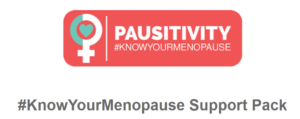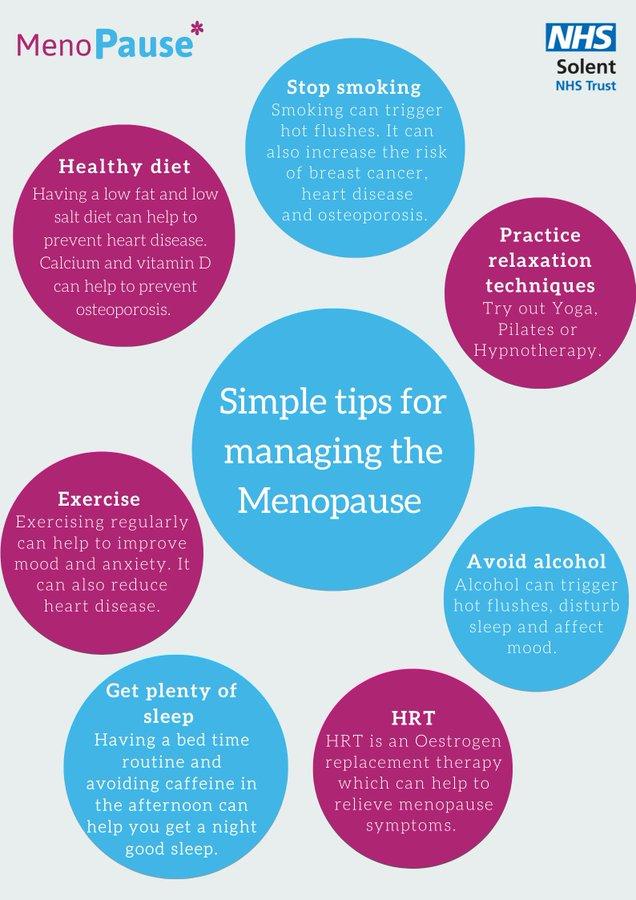The Menopause – Fiona’s Story
Fiona from Solent NHS Trust shares her experience of the menopause with us:
I have worked for Solent NHS Trust for 5 years. I’m 47 years old and have been married for 22 years, with two brilliant grown-up boys. I also care for two elderly and disabled mums.
In some ways I was fortunate because I went in to the menopause overnight, following a full hysterectomy. At the time it felt very dramatic to have full surgery but now I’m actually grateful, as I have no ongoing concerns. I really feel for friends of mine who are getting slowly experiencing symptoms but are being told ‘it’s just stress’ or ‘you need to watch your diet’.
Post-surgery, I returned to a really supportive workplace but I did struggle with extreme fatigue and hot flushes, which became difficult to manage when others wanted to switch the air conditioning off! Even though I knew logically that the surgery had actually helped my health, there was a part of me that felt I must have somehow aged overnight. I noticed my skin felt dry, I rapidly gained weight. I can honestly say I’ve had days where I’ve felt more exhausted than when I gave birth. Luckily, I’ve only experienced a few of the acknowledged 72 symptoms of Menopause!
A genuinely life affirming moment was on a hot summer day, travelling on a train with colleagues and our Chief Executive. One of us confessed to feeling overwhelmingly hot and experiencing a hot flush. That was it! The dam broke and five women became extremely animated, all sharing our Menopause stories.
This event took our Trust in a great direction, setting up a Menopause team, who established a series of ‘MenoPause’ roadshows with the support of our brilliants specialist Dr. Caroline Taylor. So many people engaged with the talks and the materials, it was obvious that there was a silent majority who needs this support, both within the NHS and wider society. Not surprising when you consider that 83% of our workforce identify as female and are over the age of 30.
We continue to develop our Menopause offer to all colleagues (many people don’t talk about the male Menopause, which can be just as debilitating). Barriers can exist when a Manager may not understand quite how severe symptoms can be but you should always make them aware and speak up if you don’t think you’re getting the support you need. Your Occupational Health and Wellbeing team will be able to support both your emotional and physical wellbeing, so do reach out to them.
If you work in a team where you might be the only person experiencing the Menopause it can feel lonely but you don’t have to go it alone – ask your workplace to start their own MenoPause group and get together to share and even have a giggle with others who understand what you are going through. My team are extremely compassionate but it was important for me to be able to share how different I was feeling with others who were on the same journey.
Now that NHS England are putting a Menopause Strategy in place, we should start to see changes in our work environments and to working practice, to make allowances for what is a natural life changing event.
Exercise for (mid-life) women every Mon/Weds/Fri 7-7.30am
Join Janice Betteridge on 3 times a week for resistance training and exercise which is of particular benefit to (mid-life) women.
Find out more: https://www.youtube.com/watch?v=52CnfEcLNHc
Mon, Weds, Fri: 7-7.30am
To join, click here https://us02web.zoom.us/j/86333850613?pwd=UVF6alVXcHJZYWYzaHg1MEhmMVNSUT09 and enter the passcode: NHSHealth
Pausitivity – #KnowYourMenopause Campaign (support pack)

To help women understand what may be happening to their body & mind during menopause we’ve created a #KnowYourMenopause Support Pack containing:
- Symptom Sorter: to help you #KnowYourMenopause.
- Ask the Doctor: empowering questions to get the most out of your doctors appointment.
- Pausitivity Poll Statistics: to understand WHY you should #KnowYourMenopause as soon as possible, take action.
- Self-Care Tips: encouraging you regain control & be kind to yourself.
- Resources: listing a wealth of sites to help you on your way. There’s something for everyone here.
- Menopause in the Workplace: How to get the support you need in the workplace
- #KnowYourMenopause Poster (English) to pin up and share with others to see. Share the love.
The Daisy Network
Daisy Network is dedicated to providing information and support to women diagnosed with Premature Ovarian Insufficiency, also known as Premature Menopause.
Their aim is to:
- Provide a support network of people to talk to
- Allow members to share information about their personal experience of POI
- Provide information on treatments and research within the fields of HRT and assisted conception
- Raise awareness of the condition among GPs and the broader medical community
Treatment Factsheets (HRT & Alternate)
Women’s Health Concern is a charitable organisation that aims to help educate and support women with their healthcare by providing unbiased, accurate information. They have produced various factsheets about the treatments for menopause, and other women’s health issues.
Guidance for employers to help manage the impact of menopause at work
https://www.acas.org.uk/guidance-for-employers-to-help-manage-the-impact-of-menopause-at-work
Acas has published guidance to help employers and managers support staff who are affected by menopause symptoms at work.
Menopause at Work – Menopause Matters magazine
An article published in the Spring 2017 issue of Menopause Matters magazine.
Menopausematters.co.uk
Menopausematters.co.uk is an award winning, independent website providing up-to-date, accurate information about the menopause, menopausal symptoms and treatment options. Here you will find information on what happens leading up to, during and after the menopause, what the consequences can be, what you can do to help and what treatments are available.
British Menopause Society (BMS)
The British Menopause Society (BMS), established in 1989, educates, informs and guides Healthcare professionals on menopause and all aspects of post reproductive health. This is achieved through an annual programme of lectures, conferences, meetings, exhibitions and our interactive website. We offer a range of publications including our quarterly journal Post Reproductive Health and the definitive handbook Management of the Menopause.
Top tips for a healthy Menopause
Top tips for a healthy menopause from : Womens Health Concern
from Nigel Denby B.Sc (Hons), RD
- Eat regularly – skipping meals will make it difficult to achieve your nutritional requirements or maintain a healthy weight.
- Eat at least 5 portions of fruit and vegetables a day for cancer and heart disease protective antioxidants and include low glycaemic carbohydrates at each meal including oats, pulses, grainy breads, pasta and other wholegrains like barley, cous cous and bulgar wheat. Eating low GL will help with weight control and mood swings.
- Eat some phytoestrogen rich foods every day such as soya milk, yoghurts and desserts, pulses like chickpeas or butter beans, soya and linseed bread and 2-3 servings a day is a good amount to aim for and may help reduce flushing and help lower cholesterol.
- Include 2-3 daily servings of low fat dairy foods or calcium enriched soya alternatives to keep calcium intake high and maintain bone density
- Eat oily fish at least once a week, and limit salt and saturated fat for a healthy heart
- Look at labels: The GDA labels on the front pf over 20,000 familiar supermarket foods help you to check, compare and choose the right foods for you – see www.gdadiet.com for more information
- Keep a watch on stimulants like caffeine (3-4 coffees/tea per day) and alcohol (less than 14 units/ week) and of course don’t smoke
- Take regular, moderate physical activity – walking, cycling, dancing are all great – aim for 30-45 minutes a day, this is vital for keeping weight under control
- Keep a healthy body weight and shape – aim to keep your waist measurement below 80 cm or 32 inches, and try not to go above a dress size 16.
- Try not to focus on one specific food or taking supplements – it’s the whole diet approach which will bring you the most benefit
- If you still feel a bit lost as to where to start, try keeping a food and activity diary for a few days, this will help you home in a few areas which need most attention.
BDA- Food Facts and advice
Menopause –
A range of lifestyle changes can make symptoms more tolerable. Hormone replacement therapy (HRT) can be used by many women to help control these symptoms, however some women cannot take HRT due to other health problems, whilst others choose not to. The decision to take HRT or not should be discussed with your doctor. For all women, diet and lifestyle changes can help with symptoms. This can include taking dietary supplement products
Please see below link for information
Simple tips for managing Menopause
Provided by Solent NHS Trust

NHS Menopause advice
https://www.nhs.uk/conditions/menopause/
The menopause is when a woman stops having periods and is no longer able to get pregnant naturally.
Periods usually start to become less frequent over a few months or years before they stop altogether. Sometimes they can stop suddenly.
The menopause is a natural part of ageing that usually occurs between 45 and 55 years of age, as a woman’s oestrogen levels decline. In the UK, the average age for a woman to reach the menopause is 51.
But around 1 in 100 women experience the menopause before 40 years of age. This is known as premature menopause or premature ovarian insufficiency.
Menopause explained videos – British menopause society
A selection of videos explaining the different aspects of Menopause
Women’s Health Concern – Fact Sheet
Women’s Health Concern have produced a useful factsheet on menopause please see below link
Domestic Abuse
https://www.womensaid.org.uk/information-support/
https://www.nationaldahelpline.org.uk/
https://www.hants.gov.uk/socialcareandhealth/domesticabuse
http://www.ashianasheffield.org/ This organisation and the one below have a national reach
https://www.roshnibirmingham.org.uk/
https://karmanirvana.org.uk/get-help/helpline/
https://citizensadvicerushmoor.org.uk/domestic-abuse-support/ Nepali Domestic Abuse Service
https://www.opoka.org.uk/ Provides support for the Polish Community
ADHD and the perimenopause and menopause
Other language leaflets – International Menopause Society
Leaflets – International Menopause Society (imsociety.org)
Brochure available in:
- English
- Chinese
- Dutch
- Indian
- Italian
- Portuguese
- Russian
- Spanish

